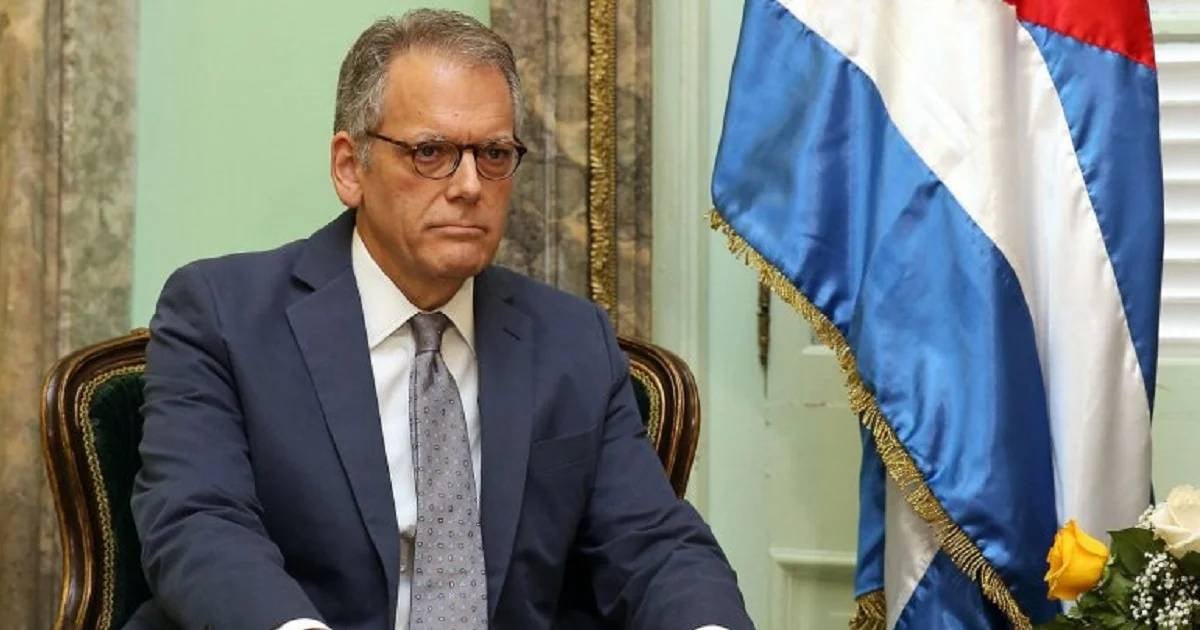
Related videos:
Jeffrey DeLaurentis, former chargé d'affaires at the U.S. Embassy in Havana during the thawing of relations between the two countries, stated in an exclusive interview with EFE that the rapprochement policy promoted by the Obama administration was "a success" and remains "the right approach" a decade later.
"Although this policy was reversed after two years, it was a success and continues to resonate today, despite the Trump administration's efforts to dismantle it," stated the diplomat, who described the notion that the approach had failed as "completely false."
The retired ambassador, who led the U.S. representation in Cuba from 2014 to 2017, emphasized that the process initiated on December 17, 2014, between Obama and Raúl Castro marked a milestone in bilateral relations after decades of tensions stemming from the Cold War.
With extensive experience in Cuba since the 1990s, he argued that the United States' dialogic approach has encouraged economic reforms and improved the living conditions of the Cuban people. "Isolation has not worked for 60 years, and frankly, it will not work," he emphasized.
During the dialogue, the diplomat also recalled the resistance encountered both in Cuba and the United States in advancing the process.
He noted that hardline sectors, mainly in South Florida, rejected the approach, while in Havana the authorities seemed "more uncomfortable with the open policy than with the hardline stance."
Following Obama's historic visit to the island in 2016, Fidel Castro responded with a strong criticism, asserting that "the empire" had nothing to offer Cuba, highlighting the internal tensions of the process.
With Donald Trump's arrival at the White House in 2017, sanctions against Havana were tightened, reversing much of the progress made during the thaw. However, DeLaurentis believes that the foundations laid during that time are still relevant.
A current approach to new challenges
In a context marked by the severe economic crisis facing Cuba—characterized by shortages of basic goods, inflation, and an unprecedented migration exodus—DeLaurentis emphasized that dialogue remains "the best way to advance Washington's interests" and support the Cuban people.
"During the thaw, we saw how the mindset of young people began to change. Many started to focus their energy on the future of the island instead of leaving," he reflected.
With the potential arrival of a new Republican government led by Donald Trump next January and figures like Marco Rubio in key roles, DeLaurentis acknowledged the challenges of resuming dialogue, although he emphasized that Obama's approach was popular in the U.S. and still has support.
"There are those who see dialogue with Cuba as a priority, albeit not the only one. In contrast, hardliners tend to place this issue at the center of their agenda," he concluded.
On the other hand, Cuban-American Congressman Mario Díaz-Balart has already claimed that Trump will put an end to the dictatorships in Cuba, Venezuela, and Nicaragua when he is back in the White House.
Just a few days ago, the United States Congress reopened the debate on the embargo against Cuba, a policy that has divided Democrats and Republicans for decades. On one side, they argue that the measure harms Washington’s image, while on the other, they advocate for tightening the sanctions.
Meanwhile, the communist regime in Havana continues on its course. President Miguel Díaz-Canel stated last Friday that his government is prepared to face the return of Trump to the presidency of the United States.
Frequently Asked Questions about Thawing Relations between the United States and Cuba
Why does Jeffrey DeLaurentis advocate for the thaw in relations between the United States and Cuba?
Jeffrey DeLaurentis defends the thaw in relations, believing it was a success and remains the right approach a decade later. He argues that the policy of rapprochement encouraged economic reforms and improved the living conditions of the Cuban people, as well as changing the mindset of young people about their future on the island.
How does the current U.S. government view the thawing process with Cuba?
The current U.S. government describes the thaw in relations as a "missed opportunity," criticizing the lack of significant progress in human rights and democratic reforms by the Cuban regime. They believe that Cuba did not take advantage of the opportunities presented by the reestablishment of diplomatic relations.
What impact did Donald Trump's policies have on the relationship between the United States and Cuba?
Donald Trump's policies reversed much of the engagement promoted by Obama. Economic sanctions were strengthened, travel and remittances were restricted, and Cuba was once again included on the list of state sponsors of terrorism, which imposed new sanctions and financial restrictions.
What is the Cuban government's position regarding Donald Trump's return to the presidency of the United States?
The Cuban government has expressed its concern over Trump's return, anticipating negative effects on the already weakened economy of the island. However, it remains optimistic about its ability to endure and survive a new period of hostility from the United States.
Filed under: